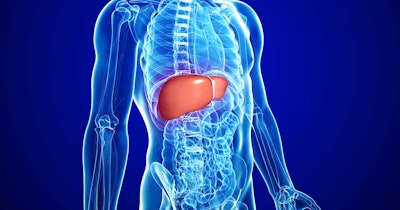
A study published Monday in Clinical Gastroenterology and Hepatology suggests that a protein carbamoyl phosphate synthetase 1 (CPS1) may be used to predict which patients might survive and which might die without a transplant.
Faster and more accurate prognoses could save lives for patients with acute liver failure who either need liver transplants or are likely to recover without one.
“Enhanced diagnostics, like CPS1, that allow earlier decision-making regarding the need for liver transplantation and that improve the predictability of outcome would clearly improve the care of patients with acute liver failure,” Lu Chen, co-author and Rutgers visiting scholar, said in a statement.
Liver failure presents in two forms: acute and chronic, or cirrhosis. About 3,000 Americans develop acute liver failure annually, resulting in sudden coagulopathy and encephalopathy. Causes include medications, autoimmunity, and viruses such as hepatitis. However, acetaminophen overdose is the leading cause, and requires immediate medical attention.
Two-thirds of patients with acetaminophen-associated acute liver failure recover with prompt treatment, but others require liver transplants. Given that transplant organs are in short supply and that early referral of acute liver failure patients with poor prognoses to liver transplant centers is essential, the study researchers sought a prognostic tool to quickly distinguish patients likely to recover from those likely to die without a transplant while transplant candidates were still healthy enough to survive the surgery.
Retrospective analysis of blood samples and medical records from 270 patients hospitalized for acute liver failure analyzed serum concentrations of CPS1, a short-lived but abundant protein. Previous studies showed that this protein has a short half-life, and only reaches the blood when acute hepatotoxicants damage CPS1-rich liver cells. If the liver starts recovering and cell death slows down or stops, which is a strong indication that a patient will survive without a transplant, blood-borne CPS1 levels decrease within hours.
The researchers reviewed records and blood samples from 103 patients with acetaminophen-induced liver failure and 167 with liver failure from other causes. Patients from the first group who received liver transplants or died within 21 days of hospitalization had about twice as much CPS1 in their blood as those who recovered. Patients from the second group who received transplants or died had CPS1 levels about a third higher than those who recovered.
Notably, increased CPS1 levels on day three versus day one of hospitalization were found in a higher percentage of acute liver failure patients who died or required liver transplantation.
The researchers concluded that using CPS1 measurements to predict outcomes for liver failure patients can improve the accuracy of these outcomes, particularly in the first days after liver failure occurs, or as part of a daily assessment during hospitalization. CPS1 levels can thus help determine which patients are more likely to survive without a transplant, and which are not. Further studies involving more patients are needed to confirm that CPS1 levels can predict acute liver failure from causes other than acetaminophen.



















